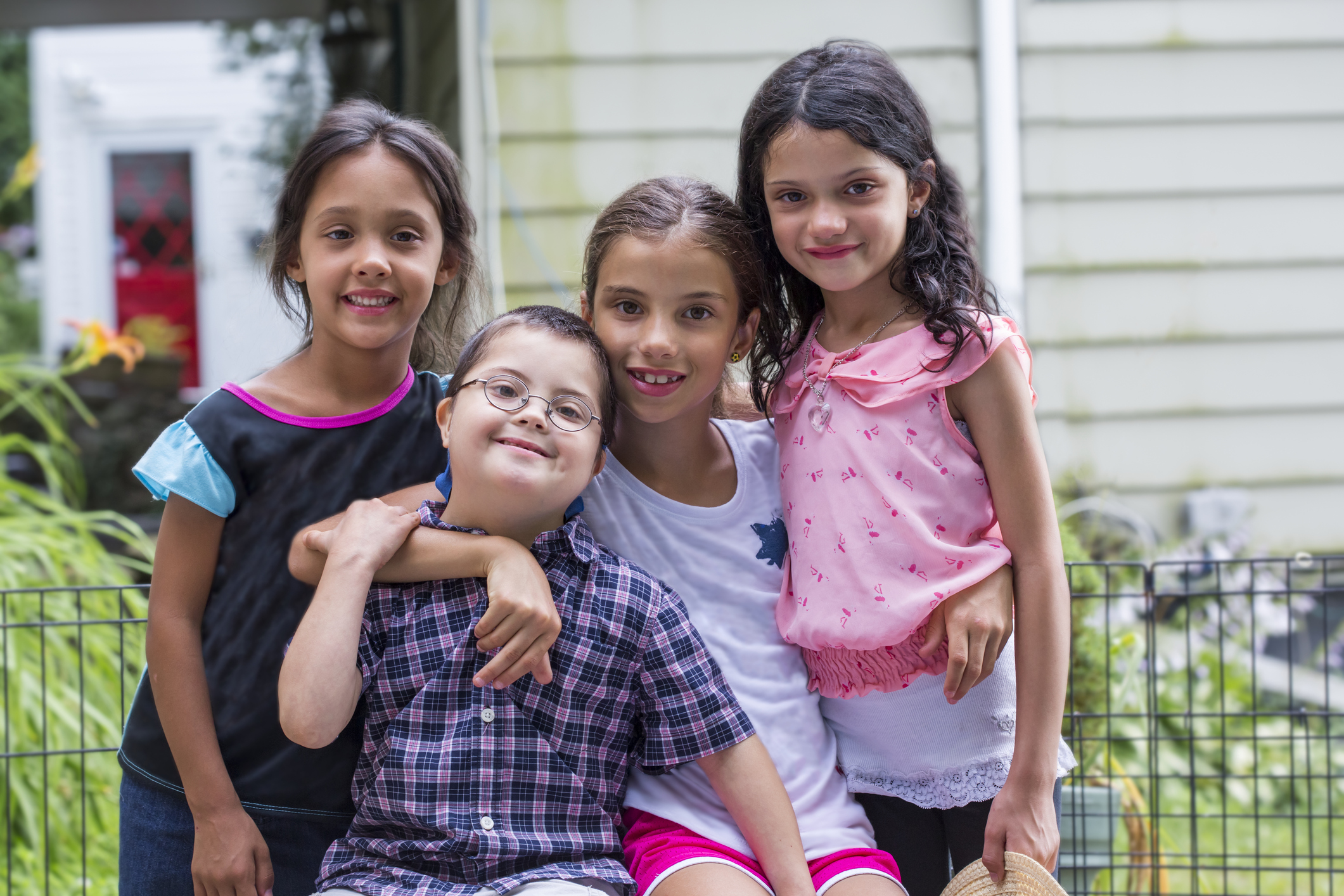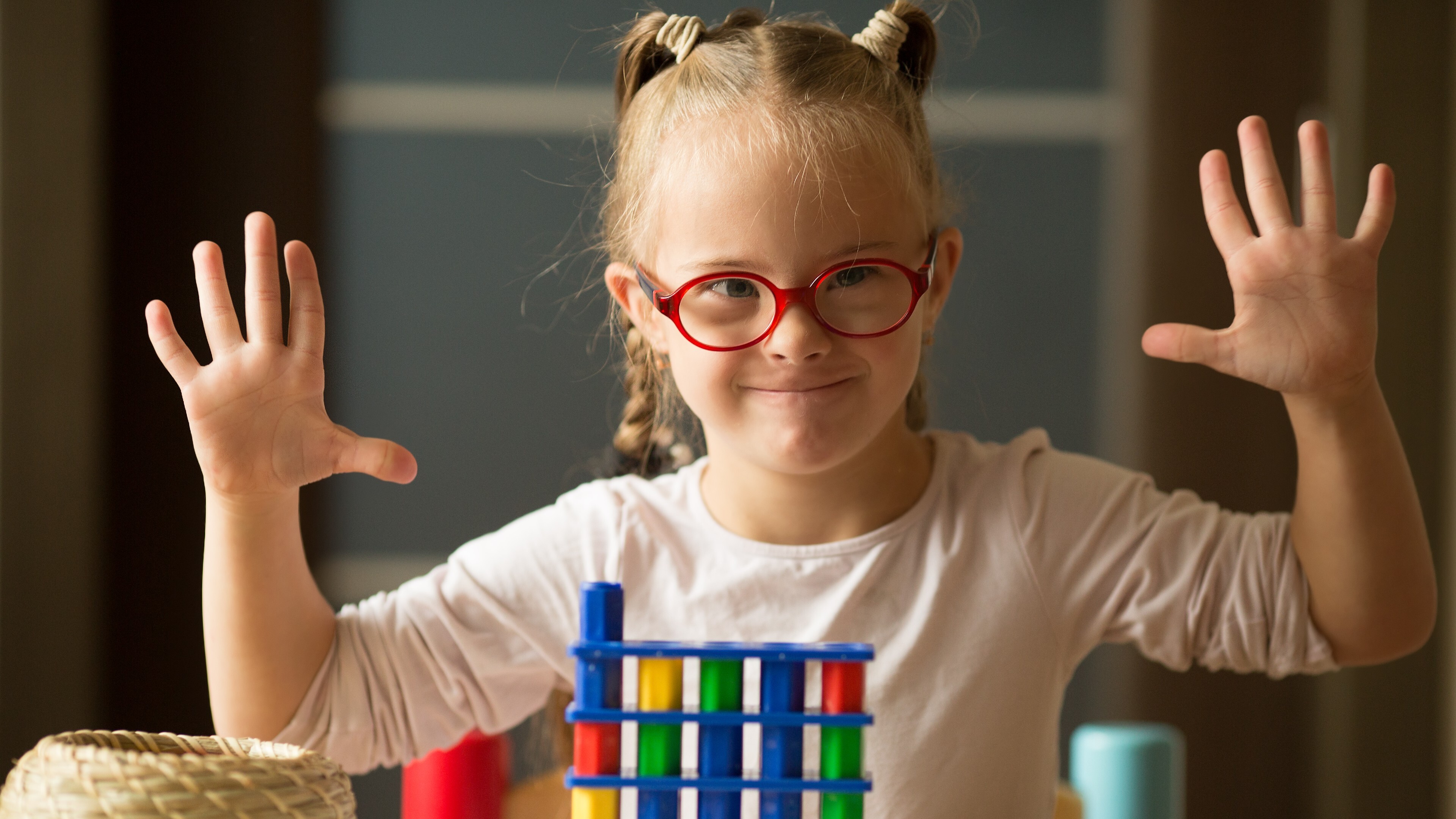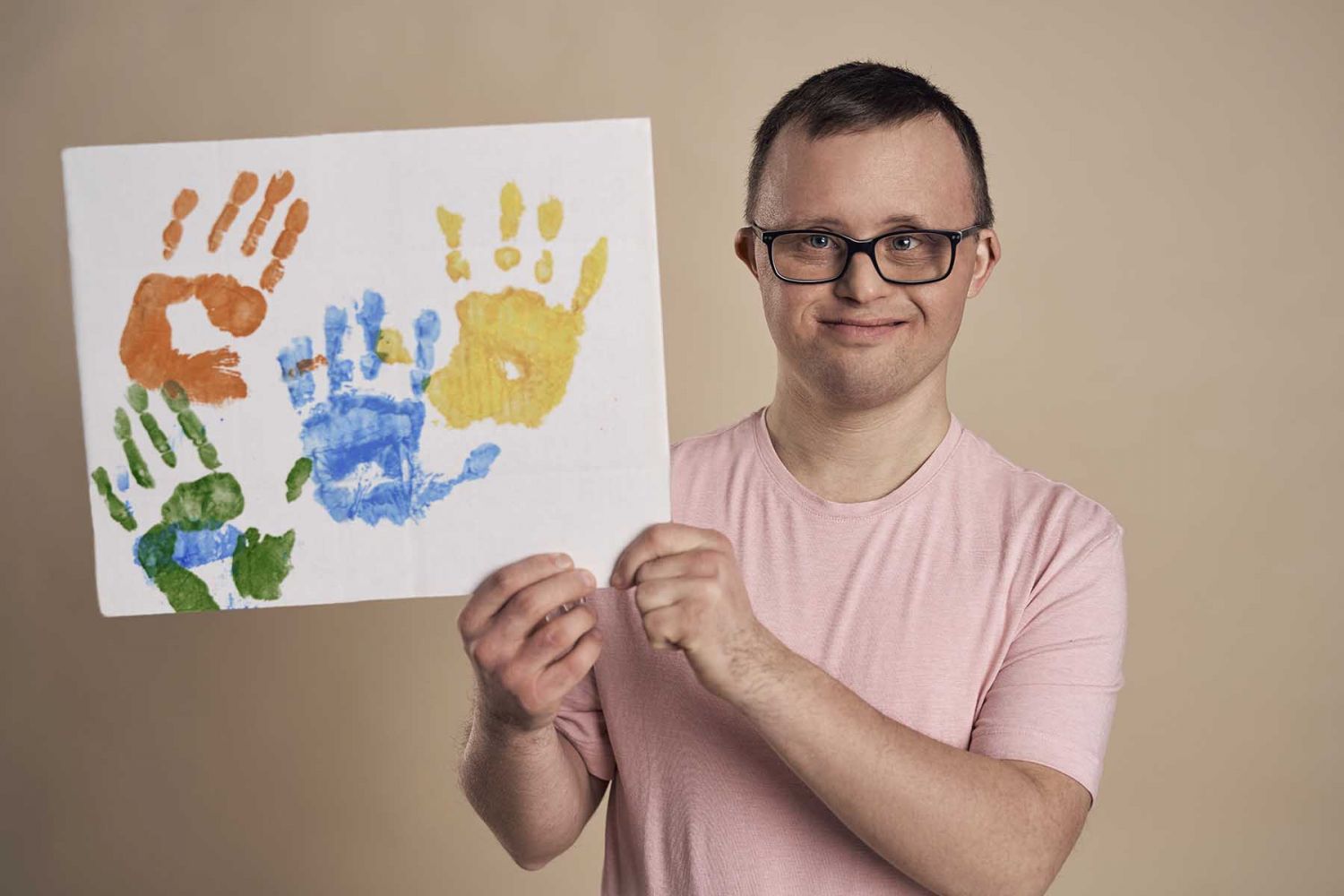There's something truly special about every person, and that holds true for individuals who have Down Syndrome. It's a genetic condition that brings with it a unique set of characteristics, yet it does not define a person's worth or their capacity for a rich, fulfilling existence. Many families and communities are finding wonderful ways to support and include everyone, helping those with Down Syndrome lead lives full of connection and personal growth. You know, it's really about seeing the person first, isn't it?
When we talk about Down Syndrome, we are, in a way, talking about a community that has grown so much in recent years. There are so many groups and programs now that help families and individuals find what they need to thrive. It’s a collective effort, one that truly shows how much good can come from people coming together. This kind of shared support, like what you might find with Down Syndrome LIPN initiatives, makes a big difference for people and their loved ones, providing pathways to a better everyday experience.
This piece will touch on different aspects of living with Down Syndrome, from getting started with early support to building strong community connections. We will, you know, look at how everyday life can be made easier and more joyful, and also clear up some common ideas people might have that are not quite right. It’s all about creating a world where everyone can feel welcome and truly belong, which is something that matters a great deal to many of us.
- Chatgpt Plus Subscription Price Iran
- Openai Chatgpt Plus Subscription Iran
- Asx1coм
- Buy Chatgpt Plus Iran
- Lake Travis Water Level Predictions
Table of Contents
- What is Down Syndrome LIPN About?
- How Does Support Help Someone with Down Syndrome?
- What Are Common Misconceptions About Down Syndrome?
- How Can We Encourage Growth and Joy for Individuals with Down Syndrome?
What is Down Syndrome LIPN About?
So, you might be wondering, what exactly does "Down Syndrome LIPN" mean, or what is it all about? Well, when we speak of Down Syndrome, we are referring to a condition that someone is born with, where they have an extra copy of chromosome 21. This extra genetic material changes how a person develops, leading to certain physical features and intellectual characteristics. It’s a natural part of human variation, and, you know, it has been present in people for a very long time, across many different cultures.
For many, learning about Down Syndrome is a first step toward providing the best possible environment for someone with the condition. It involves getting a good grasp of what it means for a person's health, their learning style, and their overall path in life. There are many things that can be done to help someone with Down Syndrome flourish, and, in fact, many people with Down Syndrome live very active and meaningful lives. It’s a matter of understanding their unique needs and strengths, which is pretty important.
The "LIPN" part, in this context, suggests a focus on local initiatives, programs, or perhaps a network of support for those living with Down Syndrome. It points to the idea that help and community are often found close to home, within one's own neighborhood or region. This kind of localized help can be incredibly beneficial, as it allows for personal connections and resources that are really quite specific to a family's situation. It's about building a web of care right where people live, which is, honestly, a wonderful thing.
- Mona Azar Age
- Who Is Tatum Oneal Married To Now
- Tatum Oneal Partner
- How To Subscribe To Chatgpt Plus In Iran
- Mlb Weather Forecast
Early Steps with Down Syndrome LIPN
When a family first learns that a child has Down Syndrome, there are, you know, a lot of feelings that can come up. It's a big piece of news, and getting started on the right foot can make a world of difference. Early intervention programs are a huge help here. These programs begin very early in a child's life, sometimes even in infancy, and they are all about helping children grow and learn at their own pace. They might involve different kinds of therapies, like physical therapy to help with movement, or speech therapy to help with talking.
These early steps, in the context of Down Syndrome LIPN, might involve connecting with local specialists and support groups. Imagine having a team of people who truly understand what you are going through, ready to offer guidance and practical advice. This kind of early connection helps parents feel less alone and gives them tools to help their child reach their full potential. It’s about setting up a strong base for future learning and development, which is, in a way, like building a very sturdy house.
The goal of these early efforts is not to change who a child is, but rather to help them develop skills that will serve them throughout their lives. It's about giving them every chance to participate fully in family life, in school, and in their wider community. Getting these supports in place early on can have a really big impact on a child's progress and happiness. It's a bit like giving a young plant the best soil and sunlight so it can grow strong and beautiful, you know, truly flourish.
How Does Support Help Someone with Down Syndrome?
So, how does having good support really make a difference for someone who has Down Syndrome? Well, it's pretty simple, actually. Just like anyone else, people with Down Syndrome do better when they feel cared for, when they have chances to learn, and when they are part of a community. Support comes in many forms, from family members who cheer them on, to teachers who adapt lessons, and even friends who simply enjoy spending time together. It’s about creating an environment where a person can truly shine.
Think about it: when you have people who believe in you, you are more likely to try new things and push yourself a little further. For someone with Down Syndrome, this belief can open up many doors. It means getting help with things that might be a bit harder, but also being given the freedom to try things independently. This balance of assistance and encouragement helps build self-reliance and a sense of accomplishment, which is, you know, something everyone needs to feel good about themselves.
This kind of support also helps individuals with Down Syndrome to express themselves, to make choices, and to live a life that reflects their own wishes and interests. It's not about doing everything for them, but rather doing things with them, helping them discover what they like and what they are good at. This approach helps them grow into adults who are active members of their communities, contributing in their own special ways. It's, honestly, a very rewarding thing to witness.
Community Bonds and Down Syndrome LIPN
Building strong community connections is, in some respects, a very important part of life for anyone, and it’s especially true for individuals with Down Syndrome. When people feel connected to their local area, they have more opportunities to make friends, to learn new skills, and to simply enjoy being out and about. Community groups, schools, and even local businesses can play a huge part in making sure everyone feels like they belong. It’s about making space for every person, which is a pretty fundamental idea.
Within the context of Down Syndrome LIPN, these community bonds might come from specific local groups or activities designed to bring people together. Perhaps there are sports teams, art classes, or social clubs that welcome individuals with Down Syndrome. These kinds of gatherings provide chances for social interaction and for building friendships that can last a lifetime. It’s about creating a sense of shared experience and mutual respect, something that really helps everyone feel more at home.
These community ties also help to spread awareness and understanding about Down Syndrome among the wider public. When people interact with individuals who have Down Syndrome in everyday settings, they often gain a clearer picture of their capabilities and personalities. This helps to break down old ideas and build a more accepting and inclusive society, which is, honestly, a goal worth working towards. It’s a bit like weaving many different threads together to make a stronger, more beautiful fabric.
What Are Common Misconceptions About Down Syndrome?
So, what are some of the things people often get wrong when it comes to Down Syndrome? One common idea is that everyone with Down Syndrome is exactly alike. This is, you know, simply not true. Just like people without Down Syndrome, individuals with the condition have their own unique personalities, their own likes and dislikes, and their own strengths and areas where they might need a bit more help. They are as varied as any other group of people you might meet, which is, actually, quite fascinating.
Another thing people sometimes believe is that individuals with Down Syndrome cannot learn or live independently. This is also a misunderstanding. While learning might happen at a different pace, and some tasks might require more assistance, many people with Down Syndrome go to school, hold jobs, live in their own homes, and participate in community life. With the right support and opportunities, they can achieve a great deal. It’s about seeing their potential, not just their challenges, which is a really important shift in perspective.
Then there's the thought that people with Down Syndrome are always happy or always in a good mood. While many individuals with Down Syndrome do have a joyful disposition, they also experience the full range of human emotions. They can feel sad, frustrated, or angry, just like anyone else. To be honest, treating them as if they are always happy can be dismissive of their real feelings and experiences. It’s about recognizing their full humanity, which is, you know, something everyone deserves.
Daily Living and Down Syndrome LIPN
When we talk about daily living for individuals with Down Syndrome, it's about making sure they have the chance to be as independent as possible in their everyday routines. This can mean learning how to do chores around the house, managing personal care, or even making their own meals. These are all skills that contribute to a person's ability to live a fulfilling life. With the right teaching methods and a bit of patience, many individuals with Down Syndrome can learn to handle these tasks, which is pretty amazing.
For Down Syndrome LIPN efforts, supporting daily living might involve providing access to life skills classes or programs that help individuals practice these abilities in a safe and supportive setting. Perhaps there are workshops on cooking simple meals, or groups that focus on getting around town using public transport. These kinds of practical lessons help build confidence and prepare individuals for a more independent future. It's about giving them the tools they need to live life on their own terms, in a way that truly suits them.
The goal is always to encourage growth and self-reliance, celebrating every small step forward. It’s about recognizing that everyone has the capacity to learn and contribute, and that with the right kind of encouragement, there are very few limits to what someone can achieve. Helping individuals with Down Syndrome master daily living skills gives them a greater sense of control over their lives and helps them participate more fully in their communities. It’s, honestly, a very empowering thing to see happen.
How Can We Encourage Growth and Joy for Individuals with Down Syndrome?
So, how do we go about making sure individuals with Down Syndrome have every chance to grow and experience joy in their lives? One big part of it is focusing on their strengths and what they enjoy doing. Every person has talents, and for individuals with Down Syndrome, finding those areas where they naturally shine can be a source of great happiness and personal satisfaction. It could be music, art, sports, or connecting with people; the possibilities are, you know, really quite broad.
Creating opportunities for learning and development that are fun and engaging is also key. This might mean using visual aids, breaking down tasks into smaller steps, or providing lots of chances for practice. When learning feels like play, people are more likely to stick with it and gain new abilities. It’s about making the learning process a positive experience, which, as a matter of fact, helps everyone learn better, no matter who they are.
Encouraging social connections and friendships is another important piece of the puzzle. When individuals with Down Syndrome have a strong circle of friends and feel accepted by their peers, it adds so much to their overall well-being. This can happen through inclusive school environments, community activities, or even just regular get-togethers with family and friends. It’s about fostering relationships that are built on mutual respect and shared interests, which is, honestly, what true friendship is all about.
Moving Forward with Down Syndrome LIPN
Looking ahead, the path for individuals with Down Syndrome and their families continues to evolve, and Down Syndrome LIPN initiatives are a part of that ongoing progress. It's about building on what we know works well and finding new ways to support individuals at every stage of their lives, from childhood through adulthood. This involves continued advocacy for inclusion, making sure that communities are set up to welcome everyone, and that resources are available to those who need them. It’s a pretty important job, really.
This forward movement also means keeping up with the latest information and research, so that the best possible care and opportunities can be provided. It’s about staying open to new ideas and adapting approaches as we learn more about how individuals with Down Syndrome learn and grow. The goal is always to help them live the fullest, most independent lives they can, filled with purpose and connection. This kind of ongoing effort is, in a way, a sign of a truly caring society.
Ultimately, the aim of any effort related to Down Syndrome, including those that might fall under the umbrella of Down Syndrome LIPN, is to celebrate each person's unique contributions and to ensure they have every chance to thrive. It’s about creating a world where differences are seen as strengths, and where every individual is valued for who they are. This ongoing commitment to inclusion and support is, you know, a wonderful thing that benefits us all, making our communities richer and more vibrant places to live.
This piece has looked at the general idea of Down Syndrome, touching on how early support can make a big difference, and how important community connections are for individuals with Down Syndrome. We also went over some common ideas that are not quite right about the condition, and talked about ways to help people with Down Syndrome live their daily lives with more independence. Finally, we considered how we can keep encouraging growth and happiness for everyone with Down Syndrome, moving forward with a spirit of welcome and acceptance. It's all about making sure every person has the chance to live a full and happy life, with plenty of support and love around them.
- How To Buy Chatgpt Plus From Iran
- Marjorie Bach Age
- George Reeves Related To Christopher Reeves
- Pathivara Temple Trekking Duration
- Chatgpt Plus Subscription Iran



